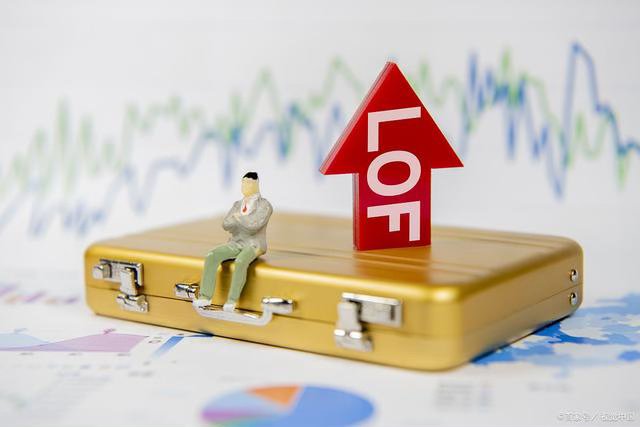How to Transform Your Credit Card into a Business Tool
Oct 22, 2023 By Susan Kelly
Advertisement
Credit cards are not only
convenient tools for making payments, but also powerful vehicles for earning rewards, managing
expenses, and building credit. Many credit card users, however, may not be aware of how to
transform their credit cards into business tools that can help them grow their businesses, save
money, and enjoy other perks.
In this article, we will explain what a business credit
card is, how it differs from a personal credit card, and how to use it wisely and effectively.
We will also share some tips and best practices to help you choose the best business credit card
for your needs and preferences, and how to avoid some common pitfalls and risks.
What
is a business credit card?
A business credit card is a credit card that is designed for
use by businesses, as opposed to individuals. Business credit cards are available to businesses
of all sizes and types, from sole proprietors and freelancers to corporations and nonprofits.
Business credit cards can offer various benefits that are tailored to the needs and goals of
business owners, such as:
- Higher credit limits: Business credit cards typically have
higher credit limits than personal credit cards, which can allow you to make larger purchases,
cover unexpected expenses, and improve your cash flow.
- Rewards and discounts: Business
credit cards often offer rewards and discounts for business-related spending, such as office
supplies, travel, advertising, and utilities. You can earn cash back, points, or miles that can
be redeemed for cash, gift cards, merchandise, travel, or transfers to other loyalty programs.
Some business credit cards also offer exclusive benefits or perks for certain brands or
partners, such as airlines, hotels, or retailers.
- Expense management: Business credit cards
can help you manage and track your business expenses, by providing you with online tools, mobile
apps, or monthly statements that can categorize, itemize, and report your spending. You can also
issue employee cards that can have individual spending limits and alerts, and that can earn
rewards for your business account. This can help you monitor and control your employees'
spending, and simplify your accounting and tax preparation.
- Credit building: Business
credit cards can help you build your business credit, which is separate from your personal
credit. Business credit is a measure of your business's financial health and reputation, and it
can affect your ability to obtain loans, lines of credit, insurance, or contracts. By using your
business credit card responsibly, you can establish and improve your business credit score and
history, and enhance your credibility and trustworthiness.
How is a business credit
card different from a personal credit card?
Business credit cards and personal credit
cards have some similarities, but also some important differences. Here are some of the main
differences between them:
- Eligibility: To apply for a business credit card, you need to
have a business entity, such as a sole proprietorship, a partnership, a limited liability
company, or a corporation. You also need to provide your business information, such as your
business name, address, phone number, tax identification number, revenue, and expenses.
Depending on the card issuer and the card type, you may also need to provide your personal
information, such as your name, address, social security number, income, and credit score. Some
card issuers may also require a personal guarantee, which means that you are personally liable
for the card debt if your business fails to pay.
- Terms and conditions: Business credit
cards and personal credit cards have different terms and conditions, such as interest rates,
fees, grace periods, and credit limits. Business credit cards usually have higher interest rates
and fees than personal credit cards, because they are considered riskier by the card issuers.
Business credit cards also have shorter grace periods and more variable credit limits than
personal credit cards, which means that you have less time to pay your balance in full and avoid
interest charges, and that your credit limit may change depending on your business performance
and creditworthiness.
- Consumer protection: Business credit cards and personal credit cards
have different levels of consumer protection, as regulated by different laws and agencies.
Personal credit cards are protected by the Credit Card Accountability Responsibility and
Disclosure Act of 2009 (CARD Act), which limits the card issuers' ability to raise interest
rates, charge fees, or change terms without notice. Business credit cards are not covered by the
CARD Act, which means that the card issuers have more freedom and flexibility to change the
terms and conditions of the card at any time and for any reason. Business credit cards are also
subject to different dispute resolution and fraud liability rules than personal credit cards,
which may make it harder or more costly for you to resolve any issues or disputes with the card
issuer or the merchant.
How to use a business credit card wisely and
effectively?
A business credit card can be a valuable tool for your business, but it also
comes with some responsibilities and risks. Here are some tips and best practices to help you
use your business credit card wisely and effectively:
- Choose the right business credit
card for your needs and preferences: There are many types and options of business credit cards
available in the market, and each one may have different features, benefits, costs, and risks.
You should compare and contrast different business credit cards and their rewards programs, and
consider their suitability, compatibility, and affordability for your business. You should also
consider your spending habits, your goals, and your lifestyle, and choose a business credit card
that offers the most rewards and benefits for the categories and amounts of spending that you do
most often, and that aligns with your objectives and values.
- Use your business credit card
for business purposes only: You should use your business credit card for business purposes only,
and avoid using it for personal expenses. This can help you keep your business and personal
finances separate and organized, and make it easier for you to manage and track your business
expenses, and prepare your accounting and tax reports. It can also help you protect your
personal credit and assets, and avoid any legal or ethical issues that may arise from mixing
your business and personal spending.
- Pay your balance in full and on time every month: You
should pay your balance in full and on time every month, and avoid carrying a balance or making
late payments. This can help you avoid paying interest and fees, which can quickly add up and
outweigh the value of your rewards. It can also help you build and maintain your business
credit, which can improve your chances of getting better terms and rates for future financing.
Additionally, it can help you avoid any penalties or consequences that may result from violating
the terms and conditions of your business credit card, such as losing your rewards, lowering
your credit limit, or damaging your reputation.
- Monitor your business credit card activity
and performance: You should monitor your business credit card activity and performance, by using
the online tools, mobile apps, or monthly statements provided by your card issuer. You should
check your balance, transactions, rewards, and fees regularly, and review your spending
patterns, categories, and trends. You should also set up alerts and notifications that can
inform you of any unusual or suspicious activity, such as unauthorized charges, fraud attempts,
or identity theft. You should also update your contact and business information with your card
issuer, and report any errors or issues as soon as possible.
How to choose the best
business credit card for your needs and preferences?
Choosing the best business credit
card for your needs and preferences can be a challenging task, given the variety and complexity
of the options available. Here are some steps and factors to help you narrow down your choices
and make an informed decision:
- Assess your business needs and goals: You should analyze
your business needs and goals, and determine what you want and need from a business credit card.
For example, you may want to increase your cash flow, earn rewards, manage expenses, build
credit, or access financing. You should also consider your budget, cash flow, and credit
situation, and how much you can afford to spend and repay on your business credit card.
-
Research and compare different business credit cards and rewards programs: You should research
and compare different business credit cards and their rewards programs, and consider their
features, benefits, costs, and risks. You can use online tools or websites, such as NerdWallet,
CreditCards.com, or Bankrate, to help you find and compare business credit cards and rewards
programs that suit your needs and preferences. You should also read the terms and conditions,
the fine print, and the reviews of each business credit card and rewards program, and look for
any hidden fees, charges, or limitations that may affect your experience or satisfaction.
-
Apply for the business credit card that offers the best value and fit for you: You should apply
for the business credit card that offers the best value and fit for you, based on your research
and comparison. You should also check the eligibility requirements, the application process, and
the approval odds of each business credit card, and prepare the necessary documents and
information that you need to submit. You should also review your credit reports and scores, and
make sure that they are accurate and up to date, as they may affect your chances of getting
approved and getting better terms and rates.
How to avoid some common pitfalls and
risks of using a business credit card?
Using a business credit card can also have some
pitfalls and risks, such as:
- Paying more interest and fees: Using a business credit
card can also cost you more money if you don't pay your balance in full and on time every month.
Business credit cards usually have higher interest rates and fees than personal credit cards,
and they may also have shorter grace periods and more variable credit limits. If you carry a
balance or make late payments, you may end up paying more interest and fees than earning
rewards, and you may also hurt your business credit and reputation.
- Hurting your personal
credit and assets: Using a business credit card can also affect your personal credit and assets,
especially if you are a sole proprietor or a personal guarantor. If you use your personal credit
card for your business expenses, or if you are personally liable for your business credit card
debt, you may affect your personal credit score and report, as your business credit card
activity and performance may be reported to the personal credit bureaus. You may also risk
losing your personal assets, such as your home or car, if your business fails to pay its credit
card debt and the card issuer sues you or seizes your property.
- Missing out on better
opportunities or deals: Using a business credit card can also make you miss out on better
opportunities or deals that may be available to you from other sources or methods. If you rely
too much on your business credit card for your business financing, you may not be aware of or
eligible for other options or methods that may offer lower interest rates, longer repayment
terms, or more favorable conditions, such as loans, grants, or crowdfunding. You may also become
too loyal or attached to your business credit card or rewards program and ignore or overlook
other alternatives that may offer more rewards or benefits, such as cash, discounts, or
freebies.
To avoid these pitfalls and risks, you should use your business credit card
wisely and responsibly, and follow the tips and best practices that we have shared in this
article. You should also review and adjust your business credit card strategy periodically, and
see if you can find a better business credit card or a better way to finance and grow your
business.
Conclusion
A business credit card is a credit card that is designed
for use by businesses, and that can offer various benefits, such as higher credit limits,
rewards and discounts, expense management, and credit building. However, a business credit card
is also different from a personal credit card, and it can have some risks, such as paying more
interest and fees, hurting your personal credit and assets, or missing out on better
opportunities or deals. To transform your credit card into a business tool, you need to choose
the right business credit card for your needs and preferences, use it for business purposes
only, pay your balance in full and on time every month, monitor your business credit card
activity and performance, and compare and optimize your business credit card usage and
rewards.
FAQs
Here are some frequently asked questions about transforming your
credit card into a business tool.
Q: How can I apply for a business credit
card?
A: To apply for a business credit card, you need to have a business entity, such as
a sole proprietorship, a partnership, a limited liability company, or a corporation. You also
need to provide your business information, such as your business name, address, phone number,
tax identification number, revenue, and expenses. Depending on the card issuer and the card
type, you may also need to provide your personal information, such as your name, address, social
security number, income, and credit score. Some card issuers may also require a personal
guarantee, which means that you are personally liable for the card debt if your business fails
to pay. You can apply for a business credit card online, by phone, or by mail, and you may
receive an instant decision or a response within a few days or weeks.
Q: How can I
improve my chances of getting approved for a business credit card?
A: To improve your
chances of getting approved for a business credit card, you should:
- Have a good credit
score and history, both for your business and for yourself. Your credit score and history
reflect your creditworthiness and reliability, and they can affect your eligibility and terms
for a business credit card. You should check your credit reports and scores from the three major
credit bureaus, Experian, Equifax, and TransUnion, and make sure that they are accurate and up
to date. You should also pay your bills on time and in full, and avoid applying for too many
credit cards or loans, to improve your credit score and history.
- Have a legitimate and
profitable business, with a clear and realistic plan. Your business entity, type, industry,
size, age, and performance can also affect your chances of getting approved for a business
credit card. You should have a legitimate and profitable business, with a clear and realistic
plan, that can show the card issuer that you have a stable and sustainable income and cash flow,
and that you can repay your credit card debt. You should also have a tax identification number,
a business bank account, and a business phone number, to prove your business identity and
legitimacy.
- Have a strong and compelling reason and purpose for applying for a business
credit card. Your reason and purpose for applying for a business credit card can also influence
the card issuer's decision, as they can show your need, motivation, and ability to use and repay
your credit card. You should have a strong and compelling reason and purpose for applying for a
business credit card, such as increasing your cash flow, earning rewards, managing expenses, or
building credit, and you should be able to explain and justify them to the card
issuer.
Q: How can I avoid paying interest and fees on my business credit
card?
A: To avoid paying interest and fees on your business credit card, you
should:
- Pay your balance in full and on time every month. This is the best and simplest
way to avoid paying interest and fees on your business credit card, as you can take advantage of
the grace period, which is the time between the end of your billing cycle and the due date of
your payment, when you can pay your balance without incurring any interest charges. You should
also avoid making late payments, as they can result in late fees, penalty rates, and negative
marks on your credit report.
- Avoid carrying a balance or making cash advances. If you can't
pay your balance in full and on time every month, you should at least pay the minimum amount
due, and avoid carrying a balance or making cash advances, as they can incur high interest rates
and fees, and they may not have a grace period. You should also try to pay more than the minimum
amount due, and pay off your balance as soon as possible, to reduce your interest charges and
fees.
- Negotiate your interest rates and fees. If you have a good credit score and history,
and a good relationship with your card issuer, you may be able to negotiate your interest rates
and fees, and ask for a lower rate or a waived fee. You should contact your card issuer and
explain why you want to negotiate your interest rates and fees, and provide some information,
such as your income, expenses, credit score, and payment history, to support your request. You
should also be prepared to make a counteroffer, compromise, or accept a temporary or conditional
change.

Triston Martin Nov 07, 2023
Unlocking the Path to Earning Your First Million: Strategies for Ordinary Individuals.

Triston Martin Nov 08, 2022
The Wealthiest of the Web: How American Internet Stars Are Earning Big Bucks

Susan Kelly Nov 23, 2023